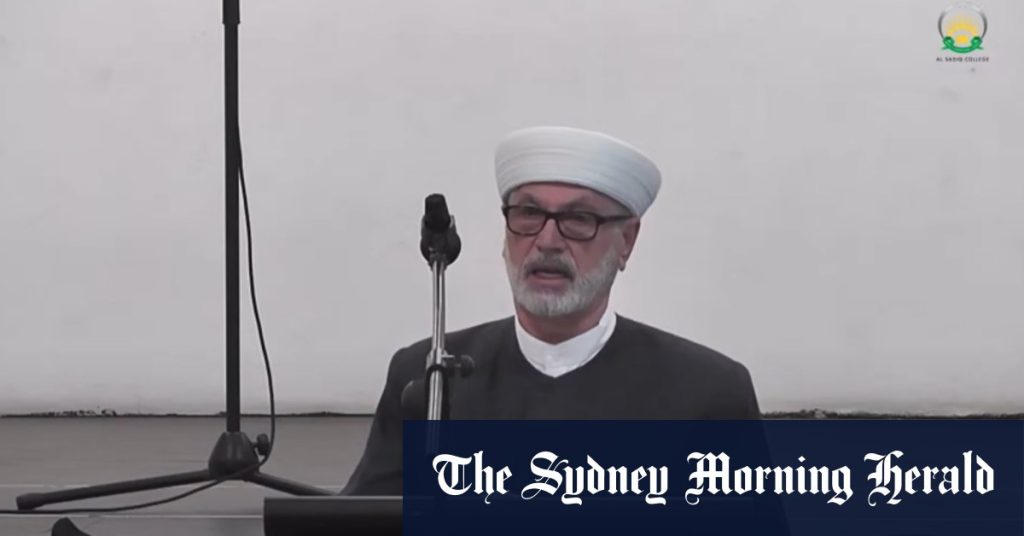At a recent event at Al Sadiq College, Sheikh Ahmad Jundi expressed controversial views that were not representative of the college as a whole. Jundi, a board member of the school, made statements in support of Hezbollah and Syrian President Bashar Al-Assad, as well as calling for victory for Hezbollah in Lebanon. The event, which was attended by children, involved religious celebrations and prayers for various causes. Jundi’s comments have sparked debate and raised concerns about the appropriateness of his views in a school setting.
The Australian Education Act requires schools to ensure that individuals associated with the school are of good character. The federal education department will be seeking further information from Al Sadiq College regarding Jundi’s statements and activities. Jundi, an Australian citizen of Lebanese descent, clarified that his comments were regarding Hezbollah as a political party in Lebanon and not intended to incite violence. He emphasized his commitment to Australia’s interests and stated that the issue of expressing support for Hezbollah is a matter for law enforcement and the government.
Al Sadiq College, which is funded by the federal and state governments, has faced scrutiny due to Jundi’s remarks. The school, which serves the Alawite community, purchased a new site last year and has two campuses in Greenacre and Yagoona. Jundi, as a representative of the Moslem Alawi Society Sydney, was part of a statement condemning Israeli aggression against Palestinians and Lebanese people. The continued support and mourning for Hezbollah leader Hassan Nasrallah in various mosques have raised questions about the organization’s designation as a terrorist group in Australia.
The Shia Muslim Council of Australia defended the flying of Hezbollah flags and mourning ceremonies for Nasrallah, stating that they are a call for an end to civilian targeting in conflict zones like Gaza and Lebanon. While some countries have designated Hezbollah’s military wing as terrorist organizations, others have taken a broader approach. The debate over the legality and appropriateness of expressing support for Hezbollah and its leaders remains contentious. Al Sadiq College and other institutions with ties to communities affected by conflicts in the Middle East are under scrutiny for their association with individuals who hold controversial views.
The controversy surrounding Sheikh Ahmad Jundi’s statements at Al Sadiq College highlights the challenges faced by educational institutions in managing the personal views of board members and affiliates. The school’s administration has emphasized that individuals do not speak on behalf of the college and that their personal views do not reflect those of the institution. Concerns about the influence of external conflicts on Australian communities and the need to uphold Australian laws and values have been raised in response to events like the one at Al Sadiq College. The federal government’s response to this incident may set a precedent for how schools handle similar situations in the future.
In conclusion, the debate over Sheikh Ahmad Jundi’s controversial statements at Al Sadiq College reflects broader tensions around the expression of political views related to conflicts in the Middle East. The question of whether expressing support for groups like Hezbollah should be considered criminal or inappropriate remains a divisive issue. Educational institutions like Al Sadiq College must navigate these complexities while upholding Australian laws and values. The ongoing scrutiny of Al Sadiq College and similar organizations highlights the need for clarity around the responsibilities of individuals associated with schools and the consequences of their actions or statements.


